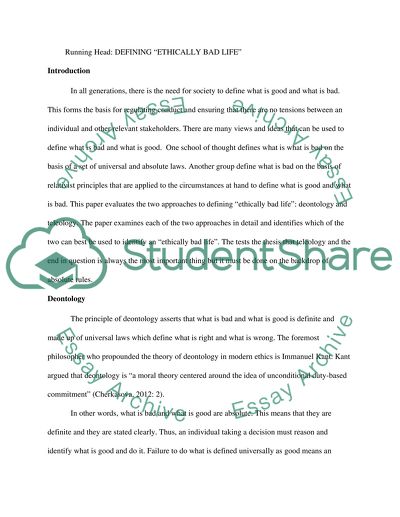Cite this document
(“Ethics Essay Example | Topics and Well Written Essays - 1500 words - 5”, n.d.)
Ethics Essay Example | Topics and Well Written Essays - 1500 words - 5. Retrieved from https://studentshare.org/philosophy/1487319-ethics
Ethics Essay Example | Topics and Well Written Essays - 1500 words - 5. Retrieved from https://studentshare.org/philosophy/1487319-ethics
(Ethics Essay Example | Topics and Well Written Essays - 1500 Words - 5)
Ethics Essay Example | Topics and Well Written Essays - 1500 Words - 5. https://studentshare.org/philosophy/1487319-ethics.
Ethics Essay Example | Topics and Well Written Essays - 1500 Words - 5. https://studentshare.org/philosophy/1487319-ethics.
“Ethics Essay Example | Topics and Well Written Essays - 1500 Words - 5”, n.d. https://studentshare.org/philosophy/1487319-ethics.


